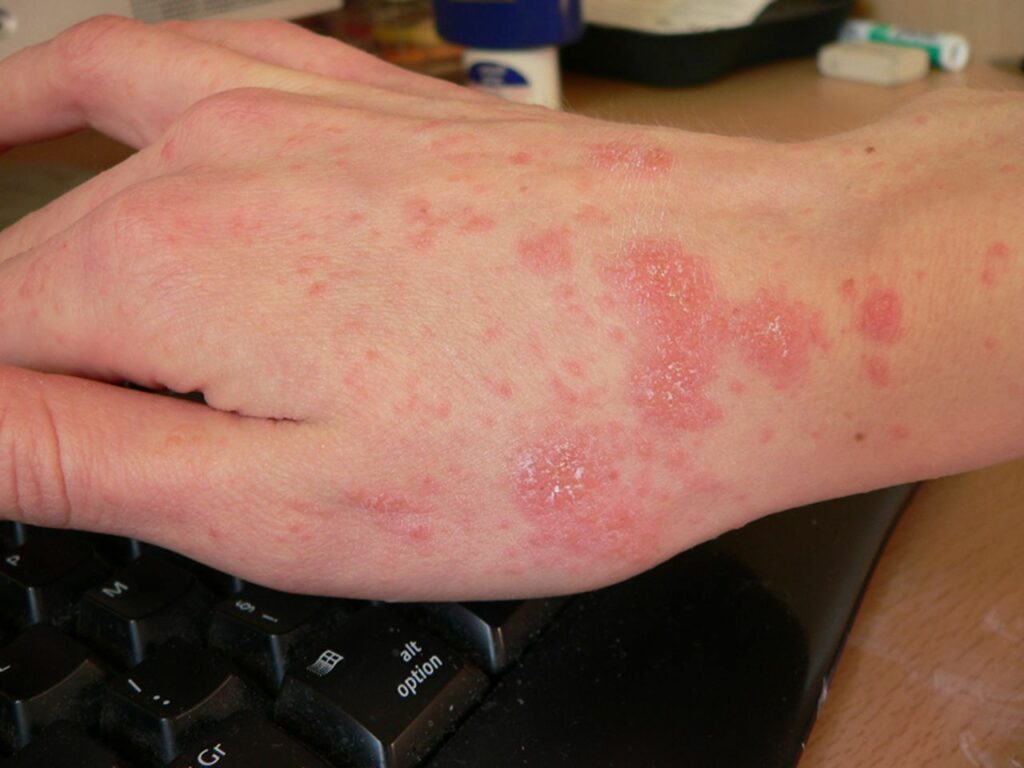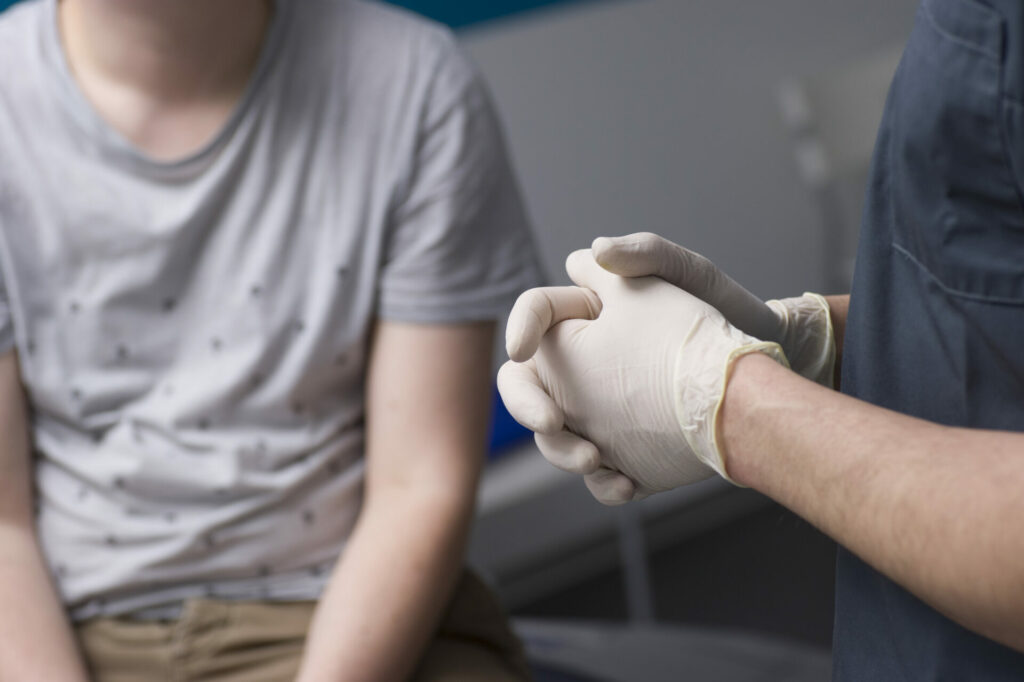While there are no conclusive figures, the number of scabies cases in Flanders has more than doubled over the past years, with an information and awareness campaign now being launched.
Figures from GP practices, sales figures of scabies medication and reports from healthcare providers suggest a sharp increase in scabies, announced Flemish Welfare Minister Hilde Crevits, who has commissioned a study on the evolution of the disease in the region.
"We have recently been receiving more and more signals about a possible increase in the number of scabies cases in Flanders. We are also being informed that the usual treatment does not work as often and patients relapse more often," said Crevits. "However, we cannot yet substantiate these signals sufficiently."
Therefore, she commissioned the Institute of Tropical Medicine (ITG) to conduct a study with two goals: firstly to make a realistic estimate of new scabies infections, cases of therapy failure and relapsed patients, and secondly to investigate the possible causes behind the alleged increase.
Incomplete figures
"To map the problem, the ITG will survey infectious disease experts, general practitioners and dermatologists through questionnaires and interviews," Crevits said. "Results of the study are expected by April 2025."
While several figures point to an increase in the number of scabies cases, each of these figure sources gives an incomplete picture, Crevits office said.
Doctors, for example, must report scabies to the Department of Care as soon as they come across two cases that are connected to each other, in a place where groups of people congregate for long periods (such as in residential care centres, nurseries, schools,...). However, individual cases or cases within a single family do not need to be reported.
In 2021, the Department of Care recorded 85 cases; in 2022, there were 118. This year, 122 cases have already been reported so far. However, not all cases will be reported.

Credit: Wikipedia
Through the Flemish GP registration network "Intego," consultations are registered using a sample of GP practices. In 2021, Intego recorded 2.18 scabies-related consultations per 1,000 patients. In 2015, this figure stood at 1.04 – showing more than a doubling of scabies consultations.
Additionally, the sales of tubes of ointment to treat scabies also increased between 2015 and 2022: about 35,000 tubes were sold in Flanders in 2015, compared to 130,000 in 2022 – but even these figures are a rough estimate, especially given that this treatment is also prescribed preventively.
In the case of reports of scabies in group settings such as schools and residential care centres, the Department of Care always monitors that all necessary hygiene and treatment measures are taken to stop further infections.
Additionally, Crevits and the Care Department are now also taking a number of initiatives to support healthcare providers in treating and combating scabies: a new guideline for doctors on how to diagnose scabies and deal with the disease. An e-learning tool and training package will also educate GPs and front-line workers on how to make a correct diagnosis and treatment.
Related News
Additionally, a campaign is planned for 2024 to inform especially high-risk groups, such as people living in group settings (residential care centres, prisons, boarding schools, shelters...), and the general population about scabies.
Scabies is a contagious skin condition caused by the scabies mite. The allergic reaction to the mite leads to itching and other symptoms such as vesicles, redness and scaling. The scabies mite prefers certain places on the body: the palm and the skin between the fingers, wrist, elbow, chest, abdomen, shoulder girdle, foot and genitals.
However, itching can occur all over the body and is often most severe at night, when it is warm. Infection can occur through prolonged (10-15 min) or regular, intense skin contact with someone who has scabies.

